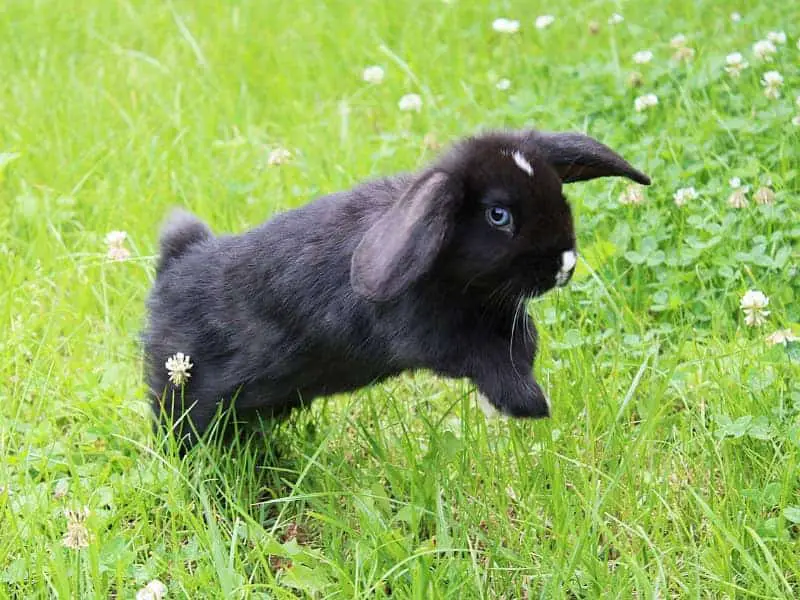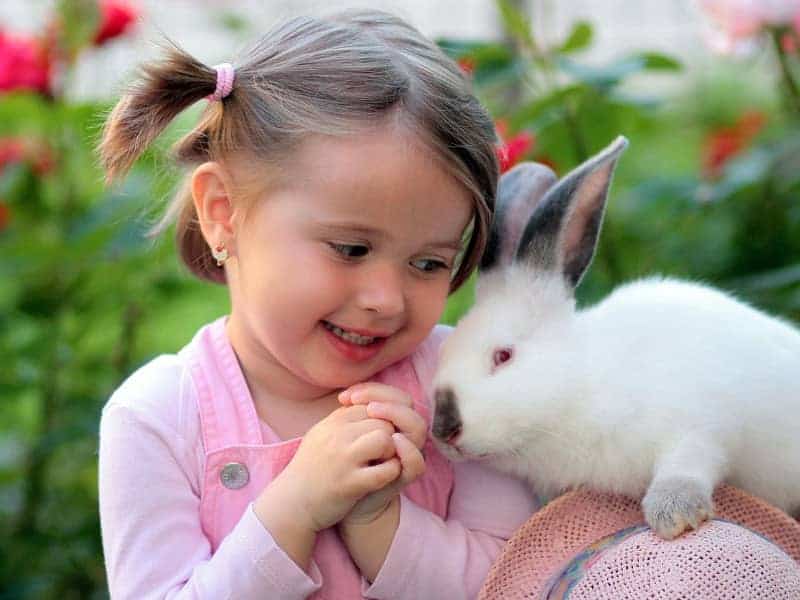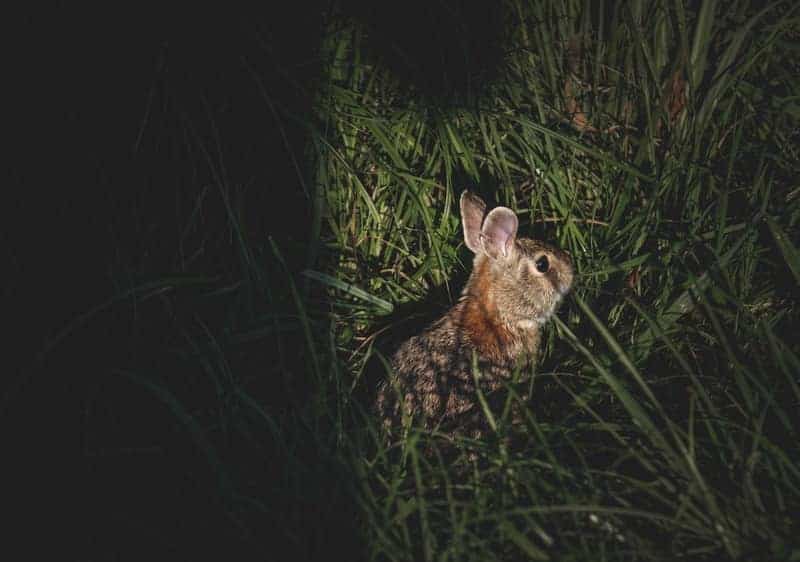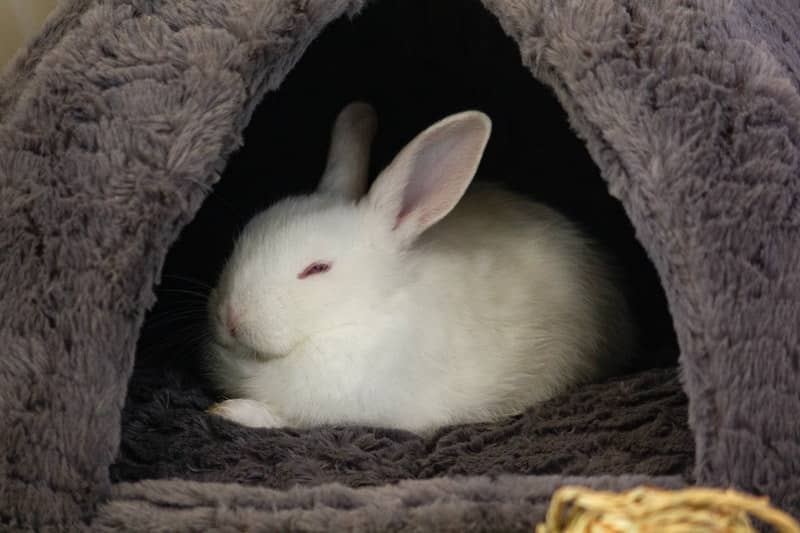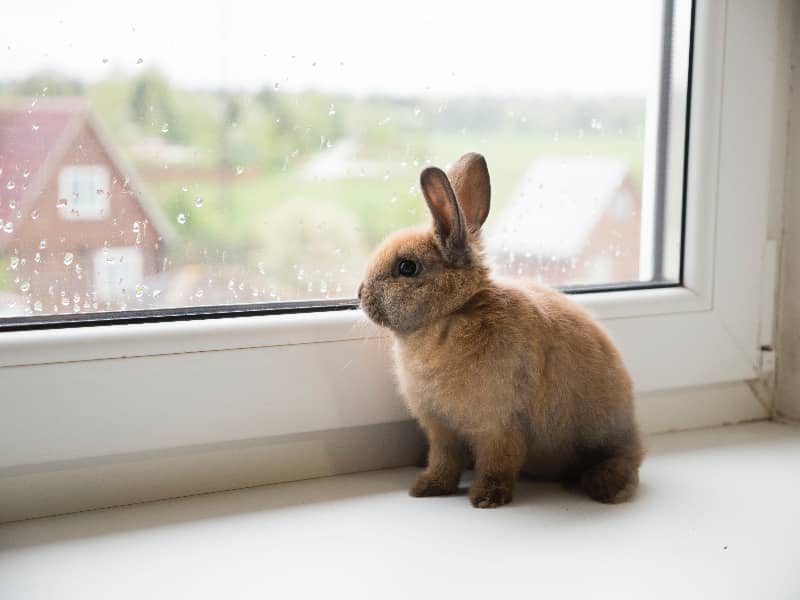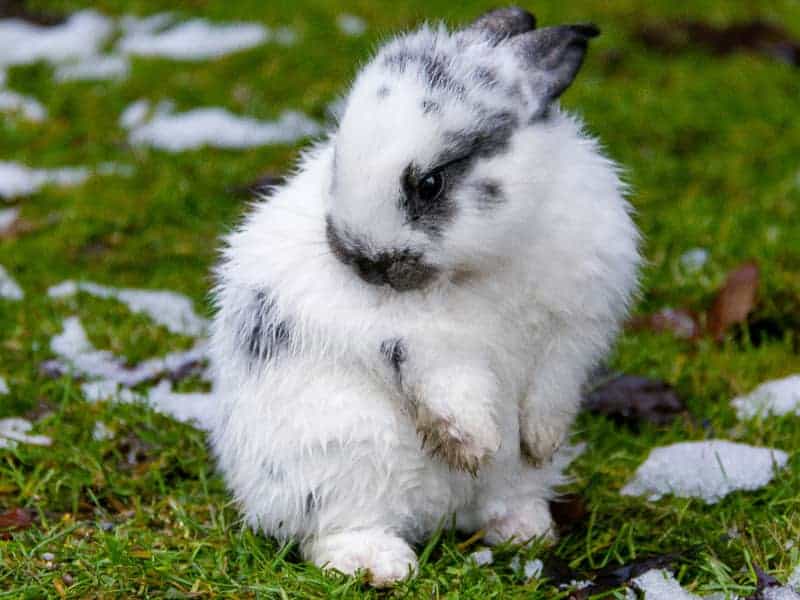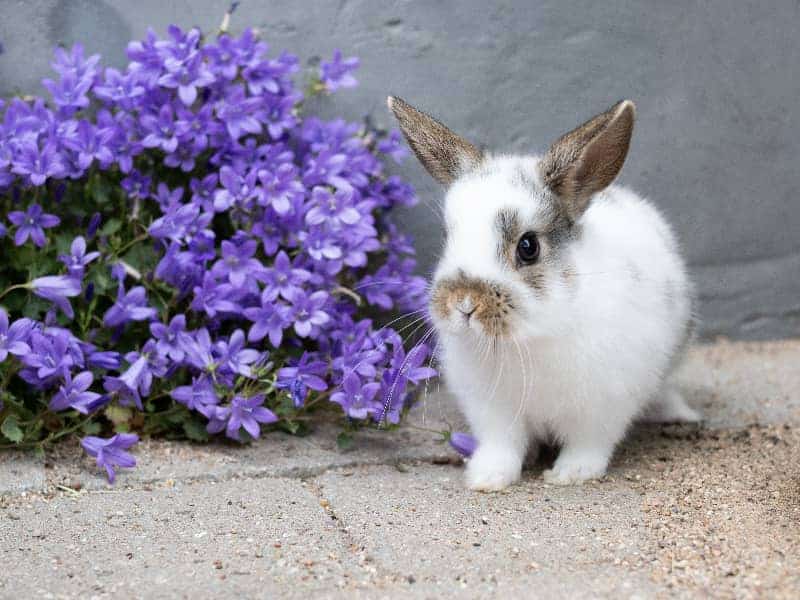
Are rabbits allowed to eat chard?
Hello dear rabbit owners and friends of the fluffy little balls of fur! Have you ever strolled through the supermarket and asked yourself the question: "Can my rabbits eat this?" As you push your shopping cart through the colorful assortment of fruits and vegetables, you spot a bright, green bunch of chard and wonder if it could be a new, healthy treat for your rabbits. Well, you're not alone in your thoughts. In this blog post, we want to answer this question: Can rabbits eat Swiss chard?
Swiss chard: a superfood?
Swiss chard is a plant from the foxtail family, the same family that includes spinach and beet. It has large, dark green leaves and thick, fleshy stems that are often bright red or yellow. Due to its high nutrient density, chard is considered a superfood for humans - it is rich in vitamins A, C and K as well as minerals such as calcium, magnesium and iron.
Sounds great, doesn't it? But does that also apply to our little friends, the rabbits?
Rabbit nutrition: A question of the digestive system
Rabbits have a unique digestive system that is specifically designed to process large amounts of fiber. This fiber is essential to keep their digestive tract moving and to ensure a healthy intestinal flora. Therefore, the basis of their diet consists of hay and grasses.
Fresh vegetables and fruit can be a healthy addition to their diet as long as they are fed in moderation. However, not every vegetable or fruit that is healthy for us humans is also suitable for rabbits. Some plants contain substances that can be harmful to rabbits.
Swiss chard and rabbits: The gray area
Well, chard is one of those gray areas in rabbit nutrition. It contains oxalic acid, which can be harmful to rabbits in large quantities. This acid binds calcium and other minerals in the rabbit's digestive tract, which can lead to the formation of small crystals.
These can develop into painful stones in the rabbit's urinary tract, which can lead to serious health problems. But is it really as bad as it sounds? There is no general answer to this question, as it depends on how much of this plant a rabbit eats.
Can dwarf rabbits eat chard?
If you are the owner of a dwarf rabbit, you should be especially careful when experimenting with chard. Because of their small size, even small amounts of toxic substances can have a significant impact on their health.
This doesn't necessarily mean you have to completely eliminate chard from your dwarf rabbit's diet, but it is important to feed tiny amounts and monitor your rabbit's reaction closely. If you notice any signs of discomfort, you should stop feeding chard immediately and contact your vet.
Swiss chard in the diet: Yes or no?
Although chard is not necessarily considered a prime vegetable for rabbits because of its oxalic acid, that doesn't mean it's completely off limits. The key words here are variety and moderation. As with so many things in life, the same applies here: The dose makes the poison. A small amount of chard mixed with other vegetables is unlikely to be a problem.
However, it is important that you do not feed too much at once and that chard does not make up the main part of your rabbit's diet.
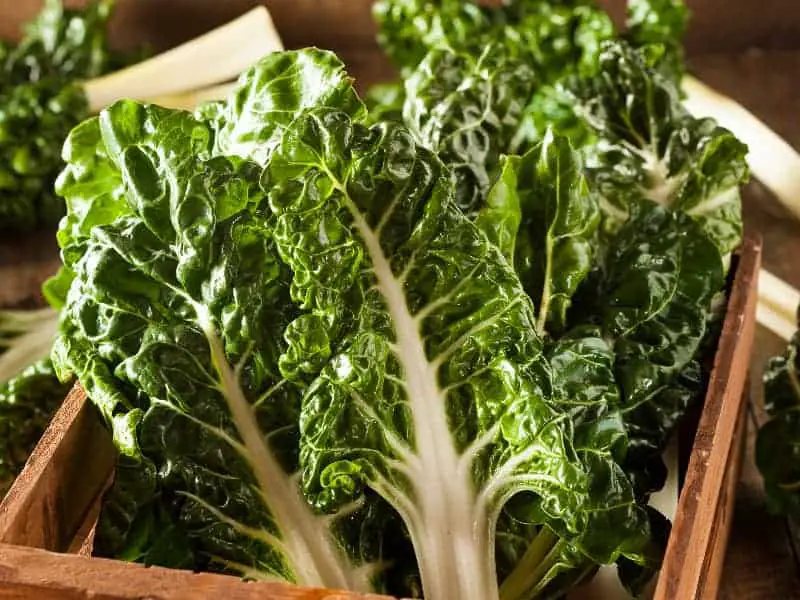
Other vegetable options for rabbits
If you're worried about the possible effects of chard on your rabbit, or just looking for other healthy vegetables to give him, there are plenty of alternatives. Carrots, broccoli, peppers, fennel and celery are all great options that are rich in vitamins and minerals while being safe for rabbits. Rabbits also love leafy greens such as lettuce, parsley and coriander.
The right food for your rabbit
It's important to emphasize that while fresh vegetables and fruit can be a healthy addition to your rabbit's diet, they should not make up the bulk of his diet. The majority of your rabbit's diet should consist of hay, which is rich in the fiber necessary to keep his digestive system healthy. Pelleted food can also be fed in small amounts, and fresh water should of course always be available.
Signs of intolerance: what you should be aware of
As with the introduction of any new food into your rabbit's diet, you should always look out for signs of intolerance or health problems. These include changes in eating behavior, appearance or consistency of stool, lethargy, or signs of discomfort such as teeth grinding. If you have any concerns, it is always a good idea to consult a vet.
Introducing chard into the diet
If you decide to introduce chard into your rabbit's diet, it is advisable to do so slowly and in small quantities. Start with a small piece and observe how your rabbit reacts. If there are no negative signs, you can gradually introduce more, but never in large quantities.
It's also a good idea to rotate different types of vegetables in your rabbit's diet to ensure they are getting a wide range of nutrients and not ingesting too much of one particular substance, such as the oxalic acid in Swiss chard.
The role of the veterinarian
When it comes to your rabbit's diet and health, the vet is always an important resource. If you are unsure whether you should give your rabbit chard or how much is appropriate, don't hesitate to ask a vet for advice. He or she will be able to advise you based on your rabbit's specific health and needs.
The eating habits of rabbits
It's fascinating to watch how rabbits eat. Their little mouths, how they hold the vegetables with their paws, it's just adorable! But have you ever noticed that they always move their nose when they chew? It's not only cute, it also has a practical purpose. This nose wiggling helps them to "smell" their surroundings while they eat. So it's also a kind of multitasking!
Rabbits and human civilization: A long history
It's amazing that these little creatures, originally from Europe, are now found all over the world and are so loved by humans. Their domestication began thousands of years ago, and since then they have played an important role in many cultures - from symbols of fertility to main characters in children's books and films.
It's no wonder we try so hard to do the best for our furry friends and make sure they are healthy and happy.
A rabbit is not just a pet
Owning a rabbit means more than just having a cute, fluffy pet. It means taking responsibility for a living creature and doing everything you can to ensure its well-being. It means understanding its needs and habits, and learning what is good and what is bad for its health. It means giving them the best care you can and learning about yourself in the process. Because ultimately, our pets teach us so much about compassion, responsibility and unconditional love.
Conclusion: Can rabbits eat Swiss chard?
In summary, chard may be fine for your rabbit in small amounts and not as the main part of their diet. However, it is essential to watch out for signs of discomfort and always consult a vet if in doubt. Although chard is not the ideal vegetable for rabbits due to its oxalic acid, there are many other vegetables that are safe and healthy for your rabbit.
The welfare of our furry friends is close to all our hearts and their health should always come first. It is therefore important to be well informed and make conscious decisions when it comes to their diet. After all, it's not just about what rabbits can eat, but what they should eat to live a long, healthy and happy life.
The most important thing is always to know your rabbit well and monitor its health carefully. And remember that nutrition is only one aspect of caring for your rabbit. Sufficient exercise, a safe environment and lots of love and attention also contribute to a happy rabbit's life.
Author

-
Garden animal - A life with nature
Welcome to my animal blog! My name is Dirk and I am happy to take you on my journey through the fascinating world of animals and gardening.
Born 54 years ago, I have had an insatiable curiosity for the animal world around me since childhood. Although I have moved professionally in other industries, my true passion has always been animals and nature. It is remarkable how a small garden has become such an important part of my life.
Many of my fondest memories are associated with the animals that share our home. Whether it's the curious squirrels that scurry across the trees in the morning, the colorful variety of birds that visit our feeders, or the busy bees and butterflies that pollinate our flowers, every moment with them is invaluable to me.
This blog is my contribution to share my experiences, discoveries and insights with like-minded people. Here I will share stories of unforgettable encounters with animals, give tips on gardening and creating wildlife-friendly habitats, and take you on my journeys through nature.
Thank you so much for being here!
Cordial,
Dirk aka garden animal
Last posts
- 27. February 2024PetsVeganes Hundefutter – Grün und Gesund?
- 18. January 2024ChickensOregano für Hühner
- November 27, 2023HamsterDiurnal hamsters
- November 24, 2023HamsterHamster hammock

